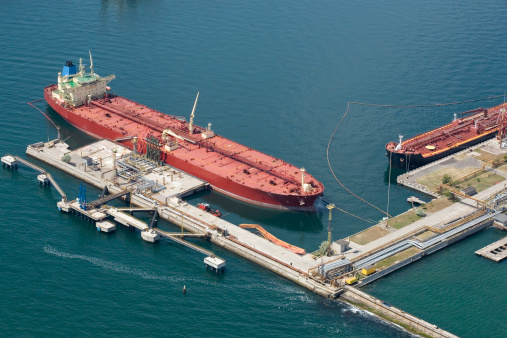Natural gas consumption continued to increase around the world in May, and liquefied natural gas (LNG) exports were up to help meet global demand, the International Energy Agency (IEA) reports.
The IEA says gross natural gas consumption increased 7.4 percent year over year in developed nations, defined as members of the Organization and Economic Cooperation and Development (OECD). Although natural gas consumption increased modestly during the COVID-19 pandemic, demand increased significantly as the global economy began to recover from the government mandated economic lockdowns associated with COVID-19.
Increased Americas’ Production, Exports
Led by the United States, with a growth in natural gas production of 5.2 percent in May, natural gas production increased in the OECD’s Americas’ region by 4.5 percent, compared to May of 2020.
By comparison, despite a growth in demand, natural gas production declined in both the OECD Europe and Oceana regions.
As a result, the OECD Americas increased its LNG exports by 34.6 percent year over year, to satisfy a 4.6 percent annual rate of growth in global LNG demand.
More Natural Gas, Lower Emissions
The Biden administration should embrace U.S. natural gas production and exports, says Merrill Matthews, Jr., Ph.D., resident scholar at the Institute for Policy Innovation, because it’s good for the America geopolitically and, if one is concerned about it, from a carbon dioxide emission perspective.
“The United States is by far the largest natural gas producer in the world, with Russia in second place, and while the U.S. is only the third largest LNG exporter, behind Australia and Qatar, the IEA projects the U.S. will also be the largest LNG exporter by 2025 – but only if it has markets,” Matthews said. “Not only has U.S.-produced natural gas for electricity generation helped us lower carbon emissions significantly, our ability to ship LNG overseas helps our allies lower their emissions.
“It also provides them with a dependable energy source that won’t be used as a political hammer to quell dissent – as Russia sometimes does,” said Matthews. “The ability to export LNG means U.S. producers have markets even if the U.S. economy slows, and knowing there are global markets encourages more production, which has the collateral benefit of keeping prices low for U.S. consumers.”
‘World Powerhouse’
United States energy production is benefitting the entire world, in part by reducing poverty, says Dan Kish, a distinguished senior fellow at the Institute for Energy Research.
“The U.S. has become the world powerhouse in natural gas exports because of the hard work, sweat, and investment of our private sector once the federal government was told to butt out of the process,” Kish said. “There are tens of billions of dollars being invested into the infrastructure making this possible, providing tens of thousands of high-skilled jobs in communities across the nation.
“This helps the U.S. project our influence around the world and keeps people working here at home producing, transporting, and processing the natural gas we are so blessed to have in abundance,” Kish said. “The world is using more and more gas as economies around the world seek to raise their people out of poverty and make their lives better.”
‘An Attractive Option’
Sadly, the Biden administration is boosting Russia’s influence by attempting to shut down an industry that projects America’s humanitarian bona fides around the world, Kish says.
“The nations in Europe who have the most experience with the boot of Russia on their neck during the Communist decades are in tune to the perils of reliance upon Russia for their energy security, while those less familiar – such as Germany – are signing up for huge volumes of natural gas from the Russian state,” Kish said “American LNG provides an attractive option to those concerned about dependence on Russia.
“Dangerously, some in the U.S. are seeking bans on the use of natural gas, and the Biden administration has placed a moratorium on leasing on federal lands and waters totaling 2.46 billion acres,” Kish said. “The national and economic security of the United States and the welfare of the world’s poor appear to be unimportant to such people.”
Duggan Flanakin (dflanakin@gmail.com) writes from Austin, Texas.


























